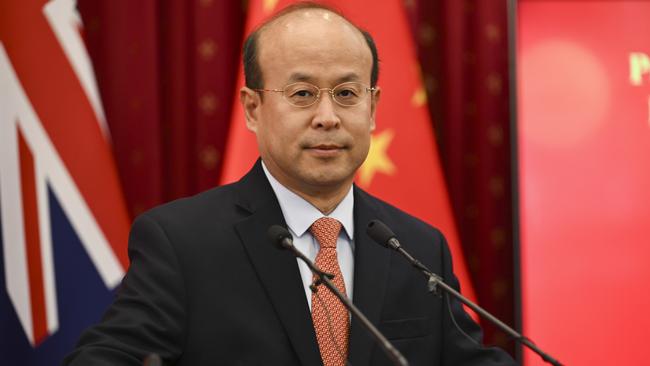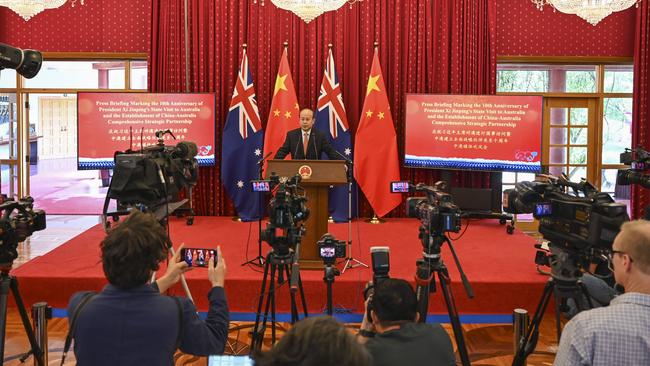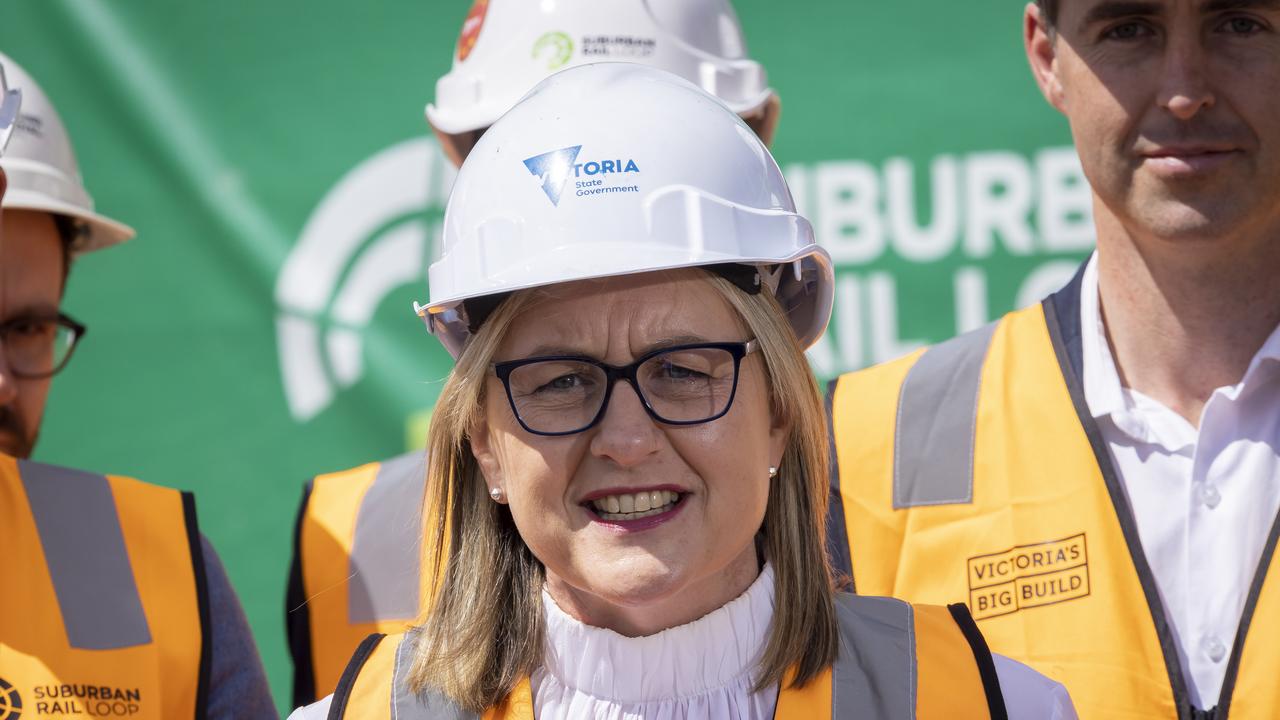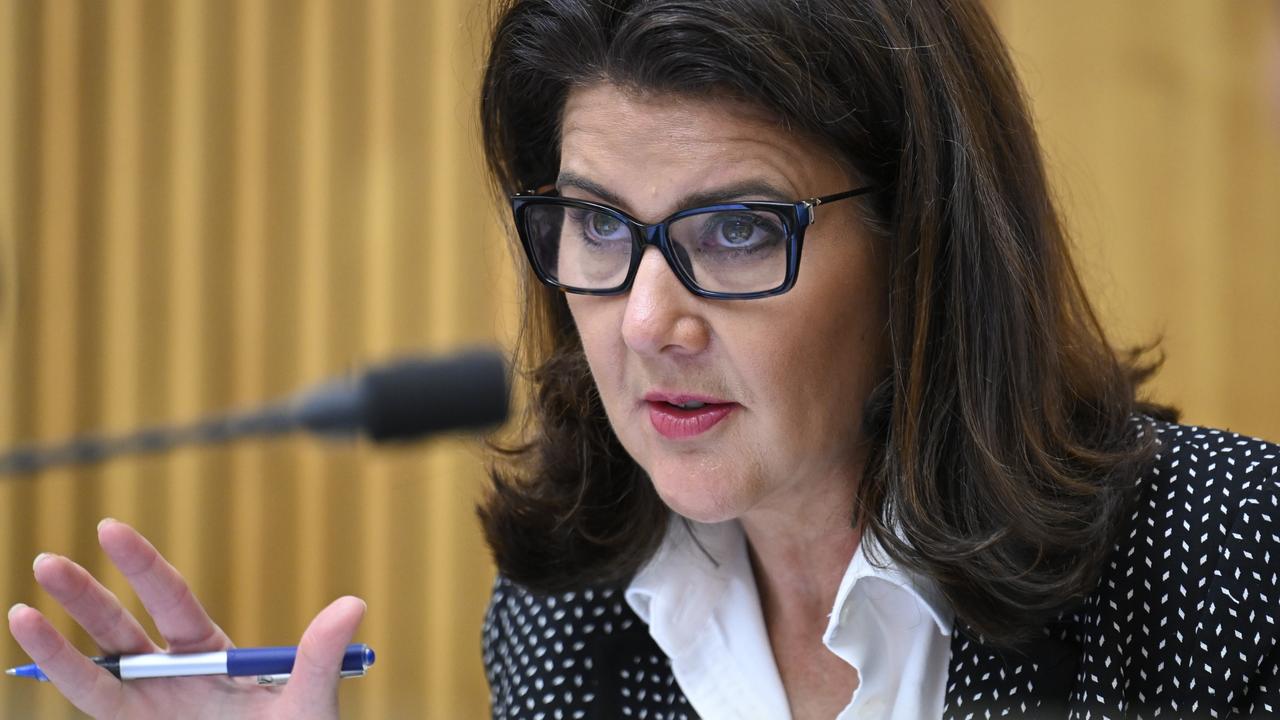‘Don’t risk ties for Trump’, Chinese envoy warns
China’s ambassador in Canberra has warned Australia not to allow Donald Trump’s election in the US to undermine the nation’s recently stabilised ties with Beijing.

Xi Jinping’s top diplomat in Australia says Donald Trump must not be allowed to undermine the newly stabilised relationship between Canberra and Beijing, as the US president-elect vows to instigate punishing tariffs and install China hawks to key cabinet posts.
Ambassador Xiao Qian said Australia-China ties were “right on track”, expressing “regret” at the souring of bilateral relations that led Beijing to impose trade bans of $20bn a year on Australian exports.
He called on Anthony Albanese to maintain positive momentum in the relationship, amid growing anxiety in Canberra and Beijing over Mr Trump’s incoming administration.
Mr Xiao said the impact of the Trump election on the Australia-China relationship was “an issue that needs to be seriously considered … There is no reason for us to compromise our respective national interests for the sake of a third party,” he said on Tuesday.
“I look forward to a constructive, productive relationship between China and Australia, irrespective of what has happened in other parts of the world.”
Amid Reserve Bank warnings that Mr Trump’s trade policies will slow Australia’s economic growth and drive down the dollar, Mr Xiao said China’s and Australia’s economies were “interdependent”, and trade between the countries had been “immensely” helpful in bringing down Australia’s cost of living.
His comments came as Mr Trump announced he would impose an extra 10 per cent tariff hike on China until it halted the flow of synthetic opioids into the US, and 25 per cent tariffs on Canada and Mexico. He has previously vowed a 60 per cent tariff increase on Chinese imports, and 10-20 per cent tariffs on all US trading partners.
Mr Trump has also sounded a warning to Beijing with the appointment of hardline anti-China figures to top national security roles, including Marco Rubio as secretary of state and Mike Waltz as his national security adviser.
Amid concerns that China’s ambitions to seize Taiwan could spark a war with the US, Mr Xiao called on Australia to support “the peaceful reunification of China” and remain committed to its “one-China policy”.
In a wide-ranging press conference, he said he hoped a new alliance-style agreement between Australia, the US and Japan to consult on regional threats would “do something constructive instead of creating problems which should not exist”.
Mr Xiao said China had been “weak for too long” and the Chinese people supported it to “stand again strongly”.

But he said his country’s stance towards other nations was one of “peace and co-operation”, and called for a resumption of regular bilateral talks between Australian and Chinese military leaders to build strategic “trust” between the countries.
Urging Australia to “celebrate” the nations’ decade-long “comprehensive strategic partnership”, he said he was pleased the “difficult” trade dispute between the countries was now in the past. “Theoretically I think it is not wrong for me to say I regret (the trade bans), because something has happened during that period of time which has caused damage to both sides,” he said. “I am sorry to say that it happened.”
But he also claimed the dispute was “not something the Chinese imposed”, pointing to Australia’s ban on Chinese telco Huawei.
As both sides of Australian politics pledge to wind back international student numbers, Mr Xiao called on Canberra to “be more friendly to the Chinese students who are applying for study in Australia”.
He said Chinese students were ambassadors for Australia-China relations but some were forced to wait more than eight months for visas.
While China blamed the Morrison government for the breakdown in bilateral ties during the Covid crisis, Mr Xiao said Beijing had “no particular preference” for Labor, and was prepared to work constructively with Peter Dutton if the Coalition were to win the next election.
At the G20 summit in Brazil last week, Mr Xi urged Mr Albanese to work with China to project “stability and certainty to the region and the wider world” in the wake of Mr Trump’s victory.
The move followed Beijing’s nomination of Mr Albanese, in a China Daily editorial, as the world leader that other American allies should emulate, praising the Prime Minister’s ability to balance the nation’s ties with both the US and China.




To join the conversation, please log in. Don't have an account? Register
Join the conversation, you are commenting as Logout